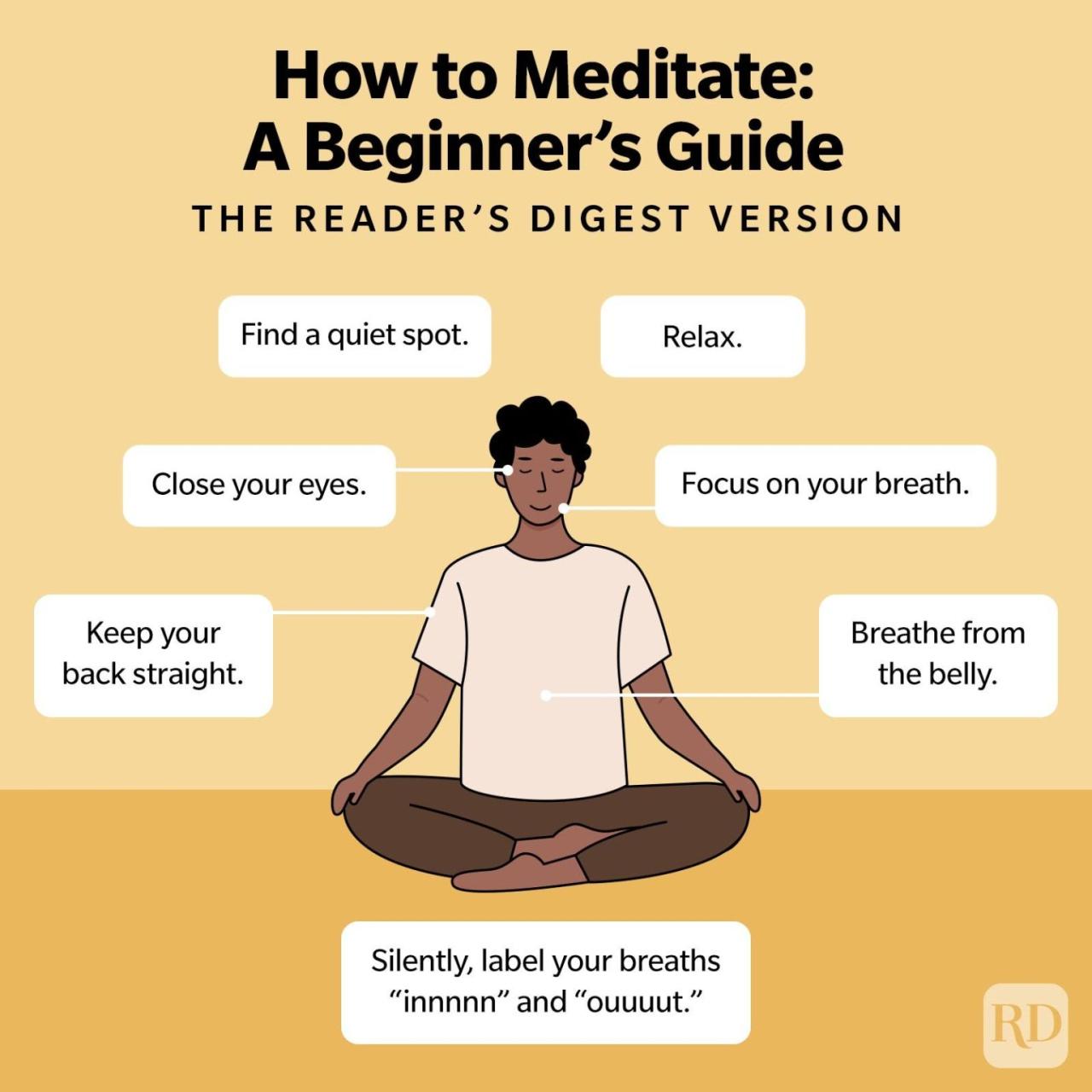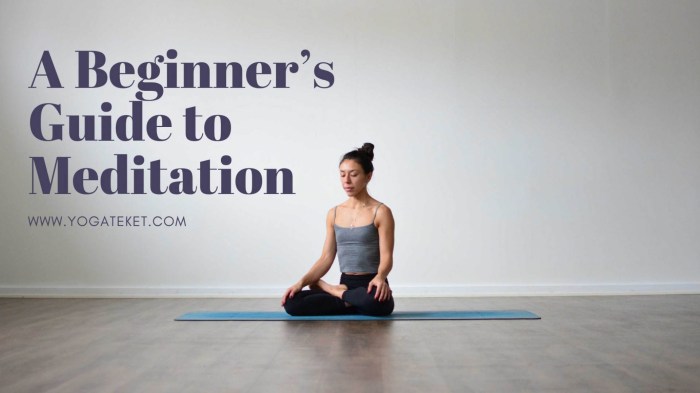Meditation for Beginners – A journey into the world of peace and tranquility awaits as we explore the benefits, types, and challenges of starting a meditation practice.
Discover how this ancient practice can transform your mental and physical well-being in ways you never imagined.
Benefits of Meditation for Beginners
Meditation offers a plethora of benefits for beginners looking to improve their mental and physical well-being. It is a powerful practice that can help reduce stress and anxiety levels, leading to a calmer and more centered state of mind. Additionally, meditation has a positive impact on overall well-being, promoting greater emotional balance and inner peace.
Mental and Physical Benefits
- Improves focus and concentration
- Enhances self-awareness and mindfulness
- Reduces symptoms of depression
- Boosts creativity and problem-solving skills
Reduction of Stress and Anxiety Levels
- Calms the mind and relaxes the body
- Helps in managing overwhelming emotions
- Promotes a sense of inner peace and tranquility
Positive Impact on Overall Well-Being
- Increases feelings of happiness and contentment
- Strengthens emotional resilience
- Improves quality of sleep
- Enhances overall sense of well-being
Types of Meditation for Beginners

When starting out with meditation, it’s important to explore different types to find what resonates best with you. Here are some common types of meditation suitable for beginners:
Mindfulness Meditation
Mindfulness meditation involves focusing on the present moment without judgment. You observe your thoughts and emotions as they come and go, helping you cultivate awareness and acceptance.
Guided Meditation
Guided meditation is when a teacher or recording guides you through the meditation practice. This can be helpful for beginners as it provides structure and support, making it easier to stay focused.
Mantra Meditation
In mantra meditation, you repeat a word, phrase, or sound silently or aloud to help focus your mind. This repetition can create a sense of calm and relaxation, making it easier to let go of distractions.
Choosing the Right Type of Meditation
When selecting a type of meditation, consider your goals and preferences. If you prefer a more structured practice, guided meditation may be a good starting point. If you want to cultivate awareness and presence, mindfulness meditation could be a good fit. Experiment with different types to see which one resonates best with you.
Setting Up a Meditation Space
Creating a peaceful and comfortable meditation space at home is essential for a successful practice. It allows you to disconnect from distractions and immerse yourself in the present moment.
Choosing the Right Location
When selecting a location for your meditation space, opt for a quiet area free from noise and interruptions. Choose a spot with natural light if possible, as it can help create a calming atmosphere.
Lighting and Decor, Meditation for Beginners
Soft, dim lighting can aid in relaxation during meditation. Consider using candles, salt lamps, or fairy lights to create a cozy ambiance. Decorate your space with items that bring you joy, such as plants, cushions, or inspiring quotes.
Creating a Dedicated Space
Having a designated area for meditation reinforces the importance of your practice. It signals to your mind that it’s time to focus and unwind. Whether it’s a corner of a room or a specific room, make sure it’s a space where you feel comfortable and at peace.
Common Challenges Faced by Beginners

Starting a meditation practice can be challenging for beginners due to various distractions and obstacles that may arise. It’s important to address these challenges and find strategies to overcome them in order to establish a consistent meditation routine.
Distractions During Meditation Sessions
- External Distractions: Noisy environment, interruptions from pets or family members, or outside noises can disrupt your focus during meditation. Find a quiet and comfortable space to meditate to minimize external distractions.
- Internal Distractions: Racing thoughts, worries, or to-do lists running through your mind can make it hard to concentrate. Acknowledge these distractions without judgment and gently guide your focus back to your breath or mantra.
- Physical Discomfort: Sitting for a long period of time can lead to physical discomfort such as stiffness or pain. Make sure to sit in a comfortable position or try different meditation postures like lying down or using a cushion for support.
Staying Motivated and Consistent
- Create a Routine: Establish a regular meditation schedule by setting aside a specific time each day to practice. Consistency is key to forming a habit.
- Start Small: Begin with shorter meditation sessions and gradually increase the duration as you build your practice. This can help prevent burnout and make meditation more manageable.
- Join a Community: Connecting with other beginners or experienced meditators can provide support, motivation, and accountability. Consider joining a meditation group or online community to stay inspired.
